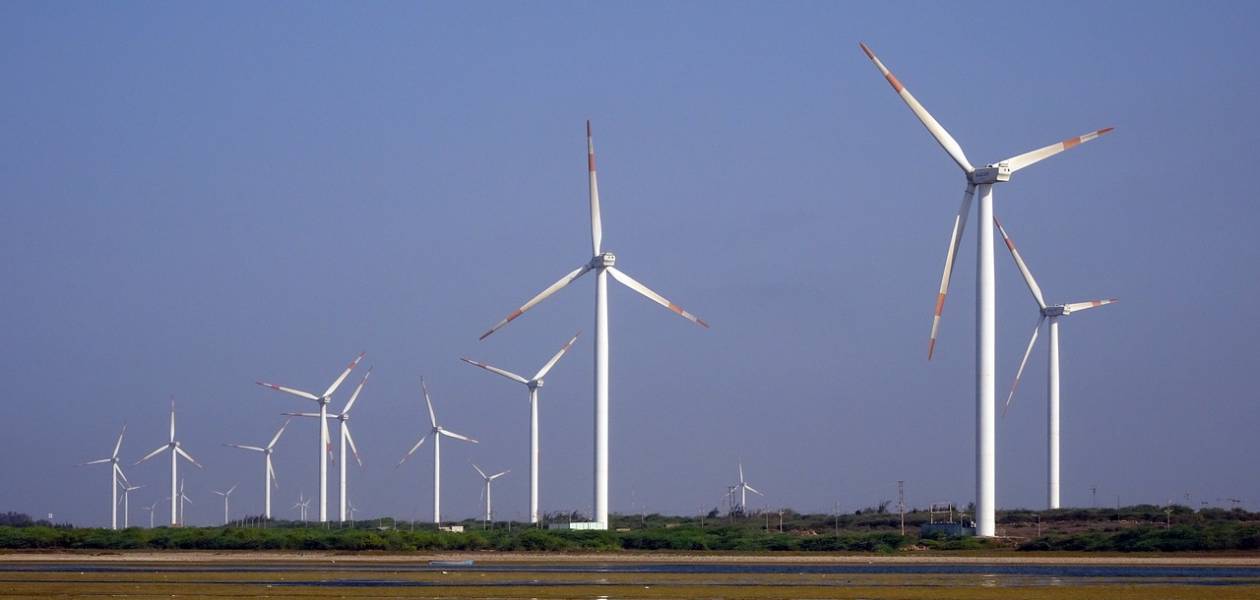
Annual clean energy investments in emerging and developing economies will need to more than triple from USD 770 billion in 2022 to as much as USD 2.8 trillion by the early 2030s to meet rising energy needs and align with the climate goals set out in the Paris Agreement, according to a new report released today by the International Energy Agency (IEA) and International Finance Corporation (IFC).
The report, Scaling Up Private Finance for Clean Energy in Emerging and Developing Economies, shows that public investments alone would be insufficient to deliver universal access to energy and tackle climate change. Increased public funding can be used most effectively in partnership with private sector capital to reduce project risks – a concept known broadly as blended finance. According to the report, two-thirds of the finance for clean energy projects in emerging and developing economies (outside China) will need to come from the private sector. Today’s USD 135 billion in annual private financing for clean energy in these economies will need to rise to as much as USD 1.1 trillion a year within the next decade.
“Today’s energy world is moving fast, but there is a major risk of many countries around the world being left behind. Investment is the key to ensuring they can benefit from the new global energy economy that is emerging rapidly,” said IEA Executive Director Fatih Birol. “The investment needs go well beyond the capacity of public financing alone, making it urgent to rapidly scale up much greater private financing for clean energy projects in emerging and developing economies. As this reports shows, this offers many advantages and opportunities – including expanded energy access, job creation, growing industries, improved energy security and a sustainable future for all.”
The report emphasises the need for greater international technical, regulatory and financial support to unlock the potential for clean energy in emerging and developing economies (EMDEs). By strengthening regulatory frameworks, energy institutions and infrastructure, and improving access to finance, this support can help governments overcome obstacles that deter clean energy investments today, including relatively high upfront costs and a high cost of capital.
“The battle against climate change will be won in emerging and developing economies where the potential for clean energy is strong but the level of investments is far below where it should be. To address the pressing energy demands and emissions reduction goals in EMDEs, we need to mobilise private capital at speed and scale and urgently develop more investable projects,” said IFC Managing Director Makhtar Diop. “This report is a call to action and offers a clear roadmap on what is needed to meet both climate and energy goals.”
The report also identifies the importance of concessional financing for projects that involve newer technologies that have yet to scale and are not yet cost-competitive in many markets, such as battery storage, offshore wind, renewable-powered desalination or low-emissions hydrogen, or that are in riskier markets. The report estimates that USD 80 billion to USD 100 billion of concessional finance will be needed annually by the early 2030s to attract private investment at the scale required for the energy transition in emerging and developing economies outside China.
Another finding highlights the potential for issuing more green, social, sustainable and sustainability-linked bonds – provided that industry guidelines, harmonised taxonomies and robust third-party certification are developed. It details the opportunity in platforms that aggregate and securitise many investments, which could overcome the asymmetry between the relatively small size of energy transition projects in emerging and developing economies and the relatively large minimum investment size that major institutional investors require.
To expand opportunities for private investors, the report underscores the need for policy reforms in emerging and developing economies. A range of cross-cutting policy issues, such as fossil fuel subsidies, lengthy licensing processes, unclear land use rights, restrictions on private or foreign ownership, and inappropriate pricing policies, create barriers to investment or increase the cost of clean energy projects. Lifting these barriers will help emerging and developing economies benefit more fully from the opportunities of the new global energy economy.
Scaling Up Private Finance for Clean Energy in Emerging and Developing Economies
A massive scaling up of investment is essential in emerging and developing economies to sustainably meet rising demand for energy, as well as to ensure that climate targets are met. Getting on track for net zero emissions by 2050 will require clean energy spending in emerging and developing economies to more than triple by 2030 – far beyond the capacity of public financing alone and therefore demanding an unprecedented mobilization of private capital.
Sources :
- International Energy Agency
Posted on 2023-06-23 17:03








Comments